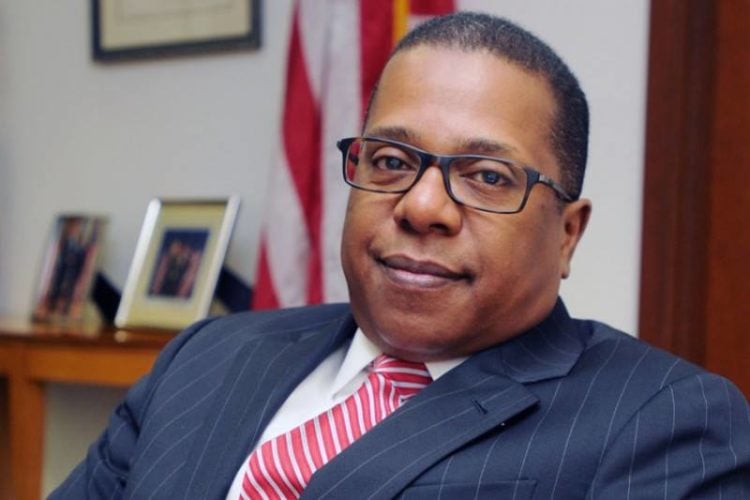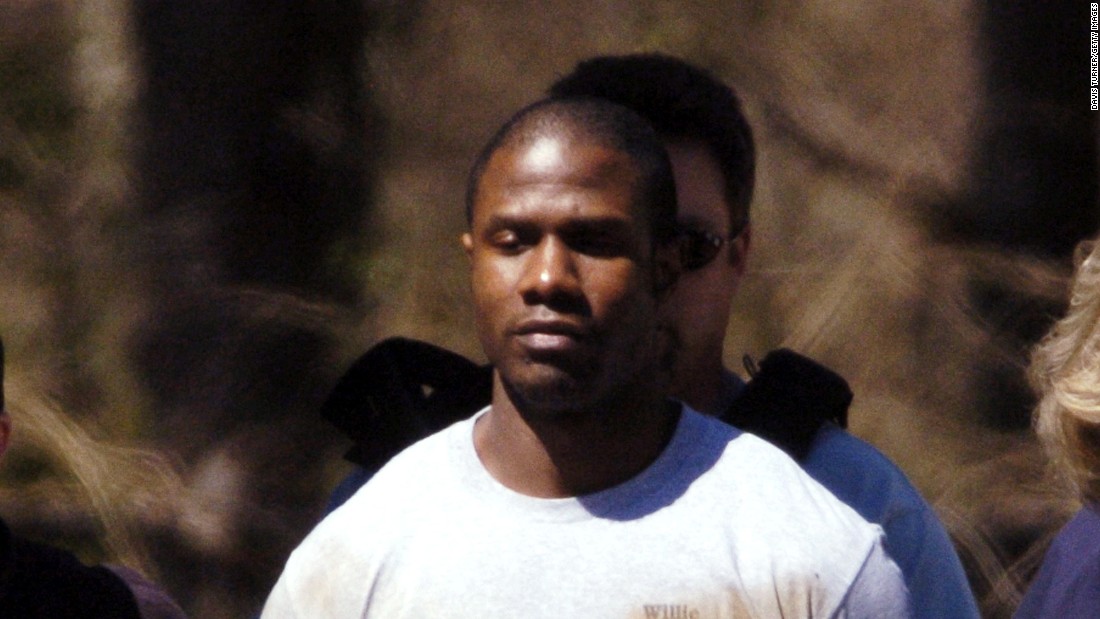Brian Nichols: The Man and His Story

Brian Nichols’ story is a tragic one, a stark reminder of the complexities of the human psyche and the devastating consequences of unchecked mental health issues. His escape from custody and subsequent rampage shocked the nation, leaving behind a trail of grief and raising critical questions about the justice system, mental health care, and the media’s role in shaping public perception.
The Escape and Rampage
On March 11, 2005, Brian Nichols, facing charges of rape and aggravated assault, was scheduled for a hearing in an Atlanta courtroom. During the hearing, Nichols, who was in handcuffs and shackles, managed to overpower the court clerk, take her gun, and escape. This daring escape was made possible by a combination of factors, including lax security measures and Nichols’ own determination. After escaping, Nichols went on a rampage, killing three people: Judge Rowland Barnes, who was presiding over his case; court reporter Julie Ann Brandau; and sheriff’s deputy Curtis Reed. He also shot and wounded a fourth victim, police officer David Santucci, who was pursuing him.
Motivations and Factors
Nichols’ actions were driven by a complex mix of factors, including his mental health struggles, his distrust of the legal system, and his own distorted sense of self-importance. Nichols had a history of mental health issues, including paranoia and delusions. He believed he was being persecuted by the government and that the legal system was rigged against him. He also expressed a belief that he was destined for greatness and that his escape was a sign of his divine purpose.
Media Portrayal vs. Personal Perspectives
The media coverage of the case was intense, focusing on the graphic details of the crimes and Nichols’ alleged mental instability. While this coverage helped raise awareness about the case, it also contributed to the public’s perception of Nichols as a deranged and dangerous individual. This portrayal, however, often overlooked the human cost of his actions, failing to adequately acknowledge the suffering of the victims and their families. The families of the victims expressed their frustration with the media’s focus on Nichols’ mental health, arguing that it overshadowed the lives and memories of their loved ones.
Ethical and Legal Considerations
The Brian Nichols case raised significant ethical and legal questions about the role of law enforcement, the justice system, and the public’s right to know. The escape itself highlighted weaknesses in security protocols and the need for stricter measures to prevent similar incidents. The case also raised concerns about the adequacy of mental health care in the criminal justice system and the challenges of balancing the rights of the accused with the safety of the public. The media’s coverage of the case sparked debates about the appropriate balance between reporting the news and protecting the privacy of victims and their families.
The Impact of the Brian Nichols Case

The Brian Nichols case, a harrowing tale of violence and escape, had a profound and lasting impact on the community, leaving behind a trail of grief, fear, and a renewed focus on security and justice. The case resonated far beyond the immediate victims, prompting a national conversation on gun control, mental health, and the efficacy of law enforcement.
Impact on the Community
The case’s impact on the community was immediate and profound. The families of the victims, including the families of the slain court employees, endured unimaginable pain and loss. The case left a lasting scar on the community, raising concerns about safety and security, particularly within the justice system. The sense of vulnerability and fear that gripped the community was palpable, leading to heightened security measures and a renewed focus on public safety.
Lessons Learned from the Brian Nichols Case

The Brian Nichols case, a tragic event that shook Atlanta in 2005, served as a stark reminder of the vulnerabilities within our criminal justice system, mental health care infrastructure, and public safety protocols. This case, marked by a series of harrowing events, exposed critical shortcomings that demanded immediate attention and systemic reform. Analyzing the case provides valuable insights into how to improve security, address mental health issues, and strengthen public safety measures to prevent similar tragedies from occurring in the future.
Security Protocol Enhancements
The case highlighted significant gaps in security protocols within the Fulton County Courthouse, where Nichols escaped custody. The following lessons learned from this incident can guide future improvements:
- Enhanced Security Measures: The case emphasized the need for stricter security measures in courthouses, including increased surveillance, metal detectors, and more rigorous screening procedures for visitors and staff. Implementing a comprehensive security plan that incorporates multiple layers of protection is essential to minimize the risk of escapes and ensure the safety of everyone within the courthouse.
- Improved Prisoner Transport Protocols: The escape exposed vulnerabilities in prisoner transport protocols. Implementing stricter guidelines for transporting high-risk inmates, including the use of specialized vehicles, increased security personnel, and real-time tracking systems, is crucial to prevent future escapes.
- Training and Education: The case highlighted the importance of comprehensive training and education for security personnel. This training should focus on recognizing potential threats, responding effectively to emergencies, and maintaining situational awareness. Regular drills and simulations can help prepare staff for unexpected situations and improve their response times.
Mental Health Awareness and Intervention, Brian nichols
The case shed light on the crucial need for enhanced mental health awareness and intervention strategies within the criminal justice system:
- Early Identification and Intervention: The case underscored the importance of early identification and intervention for individuals exhibiting signs of mental illness. Providing access to mental health assessments and treatment programs can help prevent individuals from escalating into violent behavior.
- Mental Health Courts: Implementing mental health courts can provide specialized services and support for individuals with mental illness who are involved in the criminal justice system. These courts offer alternative sentencing options, treatment programs, and ongoing monitoring to help individuals regain stability and avoid re-offending.
- Collaboration Between Law Enforcement and Mental Health Professionals: Fostering collaboration between law enforcement agencies and mental health professionals is essential for effective crisis intervention. Training law enforcement officers in crisis de-escalation techniques and providing access to mental health professionals for consultation can help de-escalate situations and divert individuals with mental illness from the criminal justice system.
Public Safety and Community Engagement
The Brian Nichols case emphasized the need for a comprehensive approach to public safety that involves community engagement and proactive measures:
- Community Policing and Outreach: Building strong relationships between law enforcement and the community is crucial for fostering trust and promoting public safety. Community policing programs, neighborhood watch initiatives, and outreach efforts can help build bridges, address community concerns, and prevent crime.
- Public Education and Awareness: Raising public awareness about the signs of mental illness and promoting mental health literacy can help break down stigma and encourage individuals to seek help when needed. Public education campaigns can also inform the community about safety precautions and emergency response procedures.
- Addressing Root Causes of Violence: It is crucial to address the underlying social and economic factors that contribute to violence and crime. This includes investing in poverty reduction programs, addressing inequality, providing access to education and employment opportunities, and promoting social inclusion.
Stakeholder Roles and Impact
The Brian Nichols case had a profound impact on various stakeholders, prompting them to reassess their roles and responsibilities:
| Stakeholder | Role | Impact of the Case |
|---|---|---|
| Fulton County Courthouse | Administration and security of the courthouse | Increased security measures, improved training for security personnel, and a review of prisoner transport protocols. |
| Fulton County Sheriff’s Office | Law enforcement and prisoner transport | Enhanced security measures for prisoner transport, improved training for deputies, and increased collaboration with mental health professionals. |
| Mental Health Professionals | Assessment, diagnosis, and treatment of mental illness | Increased emphasis on early identification and intervention for individuals with mental illness, expanded access to mental health services, and greater collaboration with law enforcement. |
| Community Organizations | Providing support services and advocacy for individuals with mental illness | Increased awareness of mental health issues, expanded access to mental health services, and greater collaboration with law enforcement and the criminal justice system. |
| Public | Safety and awareness | Increased awareness of mental health issues, heightened security concerns, and a greater emphasis on community policing and public safety initiatives. |
Brian Nichols, the mastermind behind Chipotle’s success, has a keen eye for detail, particularly when it comes to sourcing ingredients and building a strong brand. This dedication is reflected in Chipotle’s stock performance, which has consistently outpaced its competitors.
To learn more about the factors driving Chipotle’s stock growth, check out this insightful article on chipotle stock , which highlights the company’s value proposition and its potential for continued success.
Brian Nichols, the name might not ring a bell for everyone, but he’s a force in the world of business. You might be more familiar with the name Brian Niccol, the CEO of Domino’s Pizza, a guy who knows a thing or two about leading a company to success.
If you want to dive deeper into his career path and accomplishments, you can check out brian niccol wikipedia. But back to Brian Nichols, he’s a master of the digital world, building a successful career in online marketing and strategy.
He’s a true example of how passion and dedication can lead to a remarkable journey in the business world.